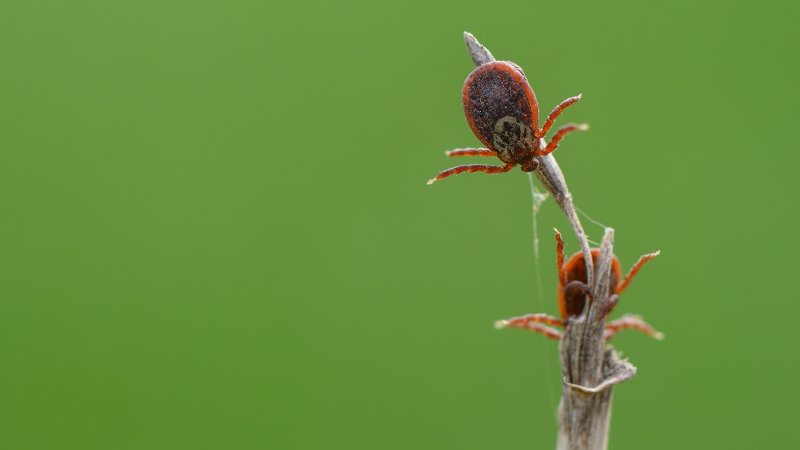
Inside sources indicate this may have been the plan all along: to create the third largest bloc in the European Parliament.
It looks like Hungary’s conservative prime minister was not bluffing when he said the new political alliance that he launched over the weekend with the Austrian and Czech populists will become the largest political force to the right of the European People’s Party (EPP) in the European Parliament (EP).
Confidential sources from within Matteo Salvini’s Lega party—a member of the sovereigntist Identity and Democracy (ID) group—claim that the creation of Orbán’s new group, ‘Patriots for Europe,’ was the pre-agreed plan between him and Marine Le Pen, the leader of the French election winning National Rally and de facto head of ID.
Instead of just simply admitting the Hungarian Fidesz and others to the ID, the group is aiming to regroup under Orbán’s new banner, making it ideologically more flexible to expand its alliance and chart a new path toward political domination on the European Right.
The claim seems to be supported by the fact that Salvini was among the first to welcome the new alliance between Orbán’s Hungarian Fidesz, Andrej Babiš’ Czech ANO, and the Austrian FPÖ—even though the latter is a founding member of ID. Salvini would hardly congratulate if Patriots meant the departure of his ally right before it’s set to win the Austrian parliamentary elections.
Italy’s Deputy PM was careful enough not to reveal all his cards, but he still implied that something bigger was afoot and Lega would be part of it. “In front of the arrogance of Brussels, which behaves as if nothing had happened after the vote of the citizens, and which does not wait for the outcome of the French elections, it is very necessary to join the forces of those who want to change Europe and offer one alternative to the unfortunate left,” Salvini addressed the three Patriots.
The timing of the announcement and Orbán’s cryptic message might also point to a pre-agreed collaboration. The Patriots were officially launched in the Austrian capital on the day of the first round of the French election, while the Hungarian PM told his supporters online to “cast [their] watchful eyes on Paris and Vienna.”
A ‘division of roles’
According to the confidential sources of the Italian daily Domani, the Patriots’ launch is just the first step of a greater scheme aiming to “rebrand” the ID and make it the third-largest group in the European Parliament and the primary conservative force in Brussels. The master plan was allegedly formulated during a closed-door meeting of ID members last Thursday, where representatives of Fidesz and ANO were also present.
The paper claims the deal reached during that meeting foresees a “division of roles” within the new formation: Orbán, the oldest poster boy of European national conservatism, would take the “front stage” as the face of the brand, but—as head of the largest faction within the group—it would be Marine Le Pen calling the shots behind the scenes. Salvini’s Lega, meanwhile, aims to put some of its own people in certain “apex roles” within the group.
Whatever the truth of it, we should know a lot more in the coming days as the official deadline for parliamentary reshuffles (July 4th) is approaching fast. However, given the snap elections in France that won’t conclude until the 7th, the ID has already requested the deadline to be extended—which might be more evidence to support the overarching plan to create a group big enough to take the bronze medal, because that might need a lot more talks to settle the numbers.
A numbers game
Le Pen’s ID group currently has 58 seats in the European Parliament and is the fifth largest. This plan, to merge under the banner of the Patriots, might land it in third place by overtaking both Macron’s liberal Renew (75 seats) and Giorgia Meloni’s European Conservatives and Reformists (ECR).
As they stand now, the Patriots have 24 seats between them—Fidesz 11, ANO seven, and FPÖ six—enough MEPs but four delegations short of creating a parliamentary group alone.
A merger between the two, however, would put the new bloc at 76 seats (not counting FPÖ twice), just seven behind the ECR. Still, the leaders seem confident that they would come out on top, which means that negotiations are ongoing with other delegations as well.
For one, the Polish Law and Justice (PiS) party, led by ex-PM Mateusz Morawiecki—who found himself increasingly at odds with Meloni over the centrist direction she’s taking their ECR group in—is reportedly considering jumping ship and joining the Patriots. Morawiecki said last week that there was a 50% chance of it happening, but he might only try to leverage the possibility to increase its influence within the ECR.
While PiS’s 20 MEPs switching sides would immediately reverse the standing of the two groups, the former Polish governing party is not necessarily needed for that to happen. Instead of them, the Patriots might open its doors for Konfederacja from Poland, which won six seats and had not been previously included in any groups.
Rumor has it that talks are also taking place with Slovak PM Robert Fico’s SMER (five seats) and maybe the EPP member Slovenian SDS (four seats), although last week both parties denied having any intention of joining. Spain’s SALF (‘The Party is Over’) might also get a place, although it would bring only one seat to the table.
The AfD question
The biggest question, however, is whether this new, rebranded ID group would have a place for the German AfD and its 15 homeless MEPs.
The Germans were kicked out of ID before the European elections. Its large delegation would undoubtedly make reaching the Patriots’ goal of becoming the third largest bloc much easier, but it’s unclear whether that’s enough to put the animosity of the past few months between them and RN behind them.
Still, the Germans are hopeful. Speaking to journalists during the AfD party conference on Sunday, co-president Alice Weidel said that the formation of the Patriots “opens up new opportunities for AfD to cooperate with other parties, as the party landscape of the ECR and ID as a whole is on the move.”
The head of the party’s EP delegation, René Aust, was also optimistic, saying that “everything is [now] in flux,” and that “it’s going to be an exciting two weeks” until the new European Parliament forms on July 16th.
The Austrian FPÖ being a member of both the ID and the Patriots might also help AfD’s case for readmittance. The Austrians have always been close to AfD and lobbied against the party’s suspension from ID, so they are probably on the side of bringing back the party under the new brand, which would help Le Pen save face as well.
If they don’t succeed, for whatever reason, AfD is left with no other option than to create its own fringe right-wing bloc from the ‘leftovers’ of the European Parliament under the name ‘Sovereignists,’ but nicknamed ‘Hooligans’. That’s not a path it would be happy to take, though, and it may not even happen. The Germans have set a clear “no antisemites” criterion for any prospective partners and some may not pass that bar.
Sources within the AfD have confirmed to The European Conservative that the talks are ongoing, but said it was too early to know whether they will succeed. Nonetheless, adding just AfD to this rebranded ID or enlarged Patriot platform would put it at 91 seats, a bloc that might truly bring about what Orbán described on Sunday as the “new era” in European politics.



